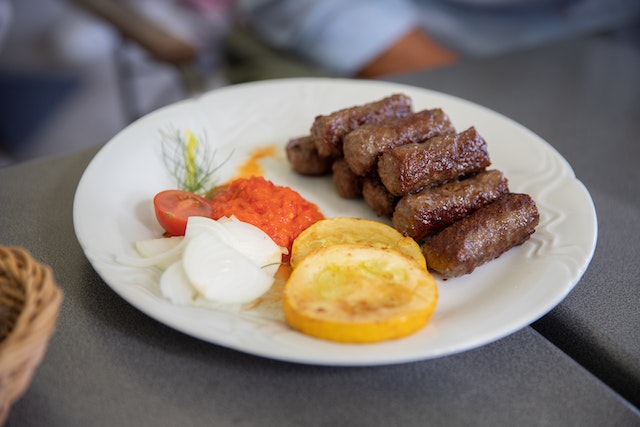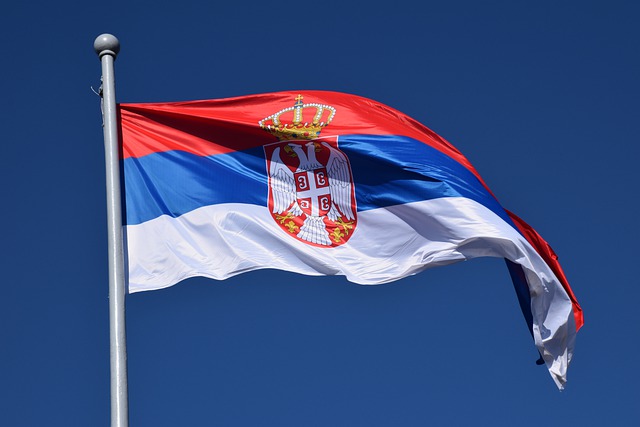Written by: Olivera Tolimir
Is it worth it to learn Serbian? It’s a common question among potential future Serbian learners.
It makes sense since Serbian isn’t one of the major world languages. There aren’t nearly that many Serbian as English native speakers. Serbia isn’t a rich country. So, the decision to relocate there for financial reasons isn’t common. Well, then, what’s the use of learning Serbian?
We’re here to answer that question!
Communicate Easily with Over 20 Million People
What? There aren’t 20 million Serbs in the world, we hear you say. And we agree.
But do you know what the fun fact is? There are more than 20 million Serbs, Croats, Bosniaks, and Montenegrins across the globe. Those are all people who you will be able to communicate with perfectly if you learn Serbian.
Our languages are linguistically the same. The differences between them resemble those between British and American English. So, if you learn Serbian, you’ll be able to make friends in four different countries! When you achieve a certain level of Serbian, you’ll probably be able to talk with Macedonians, too.

Unique & Easy Alphabet(s)
You’ll have a blast with the Serbian alphabets! It’s not a mistake: we use two different alphabets – Cyrillic and Latin. Cyrillic is in the official use. But with modern technologies and the internet, Latin has become prevalent in younger generations.
Both alphabets are consisted of the same 30 sounds, written differently. And here comes the easy part – every letter is always pronounced the same. So, you don’t have to worry about reading. Since you can read this blog post in English, you’ll master Serbian Latin letters in a day or two.
If English is your native language, you’ll enjoy not asking yourself: How am I supposed to read this?! At least while reading Serbian. Learning Serbian Cyrillic will take a little effort, but it’ll be worth it! You’ll be able to brag among your friends about knowing this extraordinary alphabet. If you’re struggling to master it, check out our blog post to help you.
Also, if you have relatives in Serbia, they’ll be thrilled to receive your first Cyrillic text message. Trust us, it’ll be priceless!
Bond with Your Serbian Relatives
So, this one is pretty obvious. If you have relatives and friends in Serbia, you don’t need any other reason to improve your Serbian. Older generations in Serbia didn’t learn English in school (they learned German and French instead). So, they’ll appreciate your effort to communicate with them more easily.
If you grew up abroad with parents of Serbian descent, you must know Serbian at some level. But never using language outside the home undoubtedly affects everyone’s speaking abilities. That’s why having lessons to learn Serbian better is extremely beneficial for you. Yes, you’re already able to speak Serbian with your favorite aunt and uncle. But why wouldn’t you surprise them with your upgraded Serbian level? Stop speaking only about the weather and hobbies. Throw in some politics and celebrity gossip. They’ll love it!

Understand the Serbian Culture
In case you’re not of Serbian descent but are thinking about starting to learn Serbian, this one is for you. Understanding a foreign culture is always fun and never easy.
People tend to view the world from their perspective. It’s a normal thing but often a stumbling block in grasping different customs. For example, if you’re not accustomed to eating that much meat and bread at home, prepare for a cultural shock in Serbia. It’s a meat-eaters heaven!
All traditional Serbian meals contain excessive amounts of meat (pljeskavica, ćevapi, sarma…). We often combine meat with potatoes and bread. Yes, yes, we know you shouldn’t mix two types of carbohydrates, but it is what it is. Also, you’ll get large or extra large portions in most restaurants. So, it’s better to learn Serbian eating habits as soon as possible and get accustomed to it!
Of course, it’s possible to find restaurants with great vegetarian and vegan food, but let’s be honest. That’s possible in bigger cities, such as Belgrade and Novi Sad. In smaller ones, a vegan meal goes as far as a salad or a combination of rice and mushrooms.
Some traditional restaurants still get confused about the difference between vegan and vegetarian food. The confusion comes from older generations mixing up the food we eat during Christmas and Easter fast with vegetarian food. The Orthodox Christian fast is basically a vegan diet, except still eating fish and honey.
Learning Serbian and speaking it well will allow you to explain to your waiter what you’re asking for, so you don’t get salmon after asking for a vegan meal.

Also, understanding Serbian culture is about getting how open and hospitable we are. A Serb who likes your company will ask you in their house for a coffee and chit-chat even if you don’t know each other that well.
If you’re going to someone’s house for the first time, it’s expected to bring a bottle of wine and 200 grams of coffee. If your new friend has children, you should get them chocolate. Also, be prepared for a 99% chance that your new friend won’t serve you only coffee, but some tasty food or at least a cake.
Serbs who move to Western countries are usually shocked that no one asks anyone to their house unless they’re very close. We highly value hospitality and enjoy making our guests feel comfortable and full (of food). But we kind of expect the same in return. It’s not a tit-for-tat thing, of course. No one is thinking about their guest returning the favor the moment they come for a visit. But if a Serb hosts you three times and doesn’t get a call in return, they’ll feel offended and probably reduce future invitations. If you do this, you’ll learn Serbian words inat and uvređenost quickly.
We, Serbs, are also very proud of our cinematography. Movie quotes are widely represented in everyday situations as punchlines. So, if you’d like to learn Serbian humor, you better master the language!
Learn Serbian to Have a Better Grasp of Other Slavic Languages
Once you learn Serbian, every other Slavic language will be incomparably easier. Slavic languages have complex for their grammar. But the grammar is pretty similar, so when you master one of them, others will come to you naturally.
But be careful. Don’t learn two or more Slavic languages at once. (If your native language is Slavic, it’s all right). They’re similar, but it can be a curse just as much as a blessing.
It means some words sound very similar, but mean different things. It can lead to confusion and funny situations. But you know what? If you’re not easily embarrassed, go for it! Why embarassed? Well… We’ll just say that ponos (понос) means pride in Serbian. It’s a common thing for parents to tell their children: Ti si moj ponos (You’re my pride). Now, google the meaning of the word понос in Russian. Yup. That’s what we’re talking about.
Do you now think it’s worth learning Serbian? Learn it and speak it with your family and in-laws, they will love you to the moon! Choose your type of learning Serbian here.



